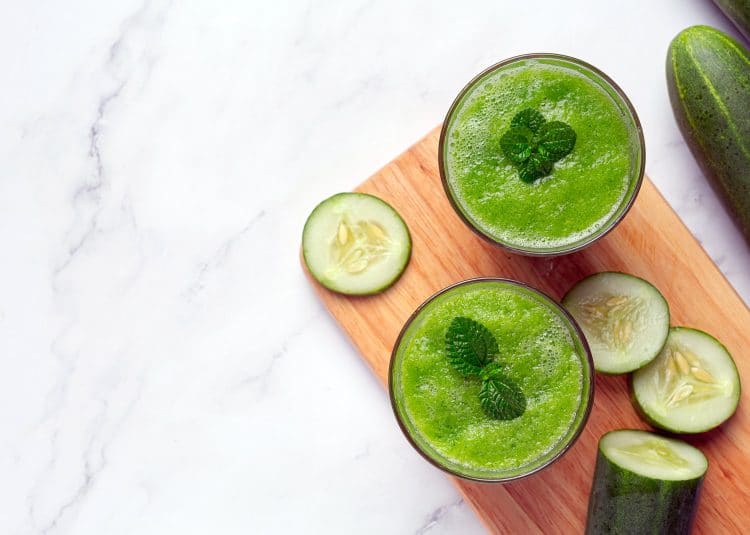Liquid dieting can be a flexible dieting approach, as it doesn’t limit the types of foods that you can consume. It only limits the form of the food, being in liquid form. Therefore, anything that you can turn into a liquid form you are allowed to consume on this diet.
It can be confusing where to begin with a liquid diet and which approach is the best for you. That’s why we’ve broken everything down that you need to know if you think going on a liquid diet is the best diet for you to reach your health and fitness goals.
What Is a Liquid Diet?
Just like its name suggests, a liquid diet is a diet where you get all of your calories and nutrients from the drinks that you consume. These can be energy drinks, juice drinks, and many other types of beverages.
Liquid diets have been the subject of ongoing research. Researchers are attempting to determine the best nutrient balance and way to consume the liquids while on the diet. [1] More research is needed to find an answer to these questions, but the popularity in liquid diets is still increasing today.
There are several different reasons to do a liquid diet, including:
- Weight loss
- Medical reasons
- “Detoxes”
Liquid Diet For Weight Loss

Liquid diets can be ideal for weight loss because the meal replacements that followers of the diet will consume are portion-size controlled, meaning there is no need to do any type of measuring the amount of food that you consume at each meal.
In addition to this, liquid diets also give you the ability to take your meal replacements on the go, and there is often little to no preparation that has to be done beforehand. Meal replacements that can be used for liquid diets are also readily available at grocery stores due to their surge in popularity.
Many proponents of a liquid diet will blend different types of vegetables and fruit together to create a tasty smoothie that can be taken on the go as well. These juice blends can be packed with substantial nutrients that make it easy to get all the vitamins and minerals that you need each day on a liquid diet.
While some scientific research is still underway on liquid dieting for weight loss, there have been some studies that show promising signs of its effectiveness.
For example, one study found that of 68 obese patients that participated in the study on a liquid diet, they experienced an average weight loss of about 26 pounds over a 12-month period [3].
In addition to some developing studies, there have also been real-life examples of those that have started on a liquid diet for weight loss and exceeded their own expectations.
In fact, Remember The Titans actor Ethan Suplee created a media frenzy after it was found out how he used a liquid diet to lose over 300lbs and totally transformed his physique to the point that you would not even recognize him.
Ethan said that he tried many different diet programs before he found one that worked best for him. His weight loss journey and body transformation journey took him ten years to accomplish, but just proves that liquid diets can be extremely effective for weight loss with the right approach.
Liquid Diets For Medical Reasons

Liquid diets are also often used for various medical reasons where a doctor prescribes this type of diet before a procedure.
One common procedure that may require a liquid diet beforehand is a colonoscopy. This is a procedure that aims to look for any changes or abnormalities in the large intestine and rectum that can result in abdominal pain, intestinal problems, and potentially colon cancer [4].
Liquid diets for medical reasons like a colonoscopy will typically be very short in duration, however these short-term diets will likely only consist of clear liquids being consumed before the procedure.
If you’re about to go on a liquid diet in preparation for a colonoscopy, there are certain products that you can use to prepare for the procedure to make it an easy and smooth process.
Another case when a liquid diet would be beneficial is after a medical procedure when the patient is recovering and may have a hard time chewing, eating, or swallowing. Procedures like wisdom teeth removal or other oral surgeries will often make use of a liquid diet to make it easier for the recovering patient to get the nutrients that they need.
Liquid Diet “Detox”

Another reason that liquid diets are used is for a “detox”, short for a detoxification. The goal of a detox is to rid your body of toxins for a variety of reasons in an effort to improve your overall health and to promote weight loss.
While the detox supplement industry is booming, there is very little clinical evidence that shows that detox diets are effective in providing any tangible benefits to those that practice them [5]. Some studies that attempted to show evidence of detox benefits are hampered by small sample sizes and flawed methodologies.
In fact, in an analysis of four popular weight loss techniques, it was found that detox diets were effective in limiting caloric intake to decrease body weight, but this weight was easily put back on once off of the detox diet and led to weight gain [6].
The only real evidence of any advantage of a detox diet is that it is effective in caloric restriction, which will in turn lead to weight loss. However, other methods of effective caloric restrictions will be more effective than a detox diet.
How to Do A Liquid Diet

While a liquid diet may sound like a very easy diet to do, there are some things that you need to know before you decide to ditch your favorite foods in order to lose weight on a liquid diet.
You need to be aware of the risks that come with a liquid diet and how to avoid many of the pitfalls that many people will fall into when practicing this diet.
Liquid diets can often be confused with liquid fasts, which is a form of intermittent fasting where you only consume liquids with zero calories. A liquid diet is simply a diet that doesn’t restrict the amount of calories, just that the foods have to be in liquid form.
When starting a liquid diet plan, you need to figure out the foods that you are going to consume that give you enough calories and nutrients to keep your body as healthy as it can be.
Purchasing a high-quality blender will likely be your best friend when starting a liquid fast, as blending up fruits and vegetables is the most common type of liquid that you will consume to get the vitamins and nutrients that you need.
In addition to finding fruits and vegetables that you enjoy, you will also want to find whole grains that you can implement into your liquid diet such as cereal. Finding dairy products like milk to mix everything with is going to be a great option if you want to make smoothies or juice blends as well.
Starting a liquid diet doesn’t need to change your eating patterns. You can still follow your same eating schedule but be aware that you may be consuming fewer calories than normal. If your goal with a liquid diet is to lose weight, you will want to consume slightly fewer calories than normal in order to get on a steady weight loss trajectory.
Also, counting your macronutrient intake will be crucial on a liquid diet, as you need to make sure that you are still getting enough carbohydrates, fats, and protein each day from your food intake.
Frequently Asked Questions:
What can you eat on a liquid diet?
You can consume any food that is in liquid form on a liquid diet, such as water, fruit juice, soup broth, ice cream, honey, tea, and coffee.
Can you lose weight on a liquid diet?
Since liquid diets are usually lower in calories than a normal diet, you can lose a significant amount of weight on this type of diet. However, liquid diets make it just as easy to put this weight back on if you return to your old eating habits.
How long should you do a liquid diet to lose weight?
Most people will only need to follow a liquid diet for a short period of time, usually from five days to two weeks. However, long-term liquid diets can be effective as well.
Why do people do liquid diets?
Liquid diets are performed for many reasons including weight loss, medical reasons, and detox cleanses.
The Bottom Line
Liquid diets can be very effective for those that formulate a plan and find out a way to stick to it. While many of those who go on liquid diets only do so for a short duration, those that practice liquid dieting with a long-term approach have seen success in their efforts, just like Ethan Suplee from Remember The Titans did in his weight loss journey.
The reason that liquid dieting for weight loss can be so attractive to those looking to lose weight is that you won’t have to measure out your food all the time and you know exactly how many calories you are consuming with some of the liquid dieting products that are available.
As always, if you have any type of medical condition or are beginning any type of diet program, we recommend consulting with your doctor first.
References:
- Hancock, S., Cresci, G. & Martindale, R. The clear liquid diet: When is it appropriate?. Curr Gastroenterol Rep 4, 324 (2002). https://doi.org/10.1007/s11894-002-0083-2
- Matsuo, T., Matsuo, M., Kasai, M. and Takeuchi, H. (2001), Effects of a liquid diet supplement containing structured medium- and long-chain triacylglycerols on bodyfat accumulation in healthy young subjects. Asia Pacific Journal of Clinical Nutrition, 10: 46-50. https://doi.org/10.1046/j.1440-6047.2001.00196.x
- Feasibility and indicative results from a 12-month low-energy liquid diet treatment and maintenance programme for severe obesity: Michael Lean, Naomi Brosnahan, Philip McLoone, Louise McCombie, Anna Bell Higgs, Hazel Ross, Mhairi Mackenzie, Eleanor Grieve, Nick Finer, John Reckless, David Haslam, Billy Sloan, David Morrison – British Journal of General Practice 2013; 63 (607): e115-e124. DOI: 10.3399/bjgp13X663073
- National Institute of Diabetes and Digestive and Kidney Diseases. https://www.niddk.nih.gov/health-information/diagnostic-tests/colonoscopy. Accessed Feb. 23, 2018.
- Klein, A. V., & Kiat, H. (2015). Detox diets for toxin elimination and weight management: a critical review of the evidence. Journal of human nutrition and dietetics : the official journal of the British Dietetic Association, 28(6), 675–686. https://doi.org/10.1111/jhn.12286
- Obert, J., Pearlman, M., Obert, L., & Chapin, S. (2017). Popular Weight Loss Strategies: a Review of Four Weight Loss Techniques. Current gastroenterology reports, 19(12), 61. https://doi.org/10.1007/s11894-017-0603-8


